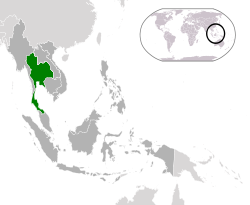Impediments To Yingluck’s New Approach For Southern Thailand – Analysis
By IPCS
By Panchali Saikia
The violence of the ethnic separatist insurgency in the southern provinces of Thailand (Pattani, Yala and Narathiwat) continues unabated, raising the brutality to the level of international terrorism by targeting foreign tourists. The recent triple bombing attack in the Sungai Kolok district of Narathiwat province on 16 September 2011 revealed one such purpose of the insurgents.
An overview report of the last one year shows that although there is a considerable decrease in the number of attacks by insurgents in Thailand, the fatalities and lethality have increased. Violence has now become more retaliatory in nature and the attacks are professionally done; they are well planned and targeted.
However, hope lies with the change in the political climate in Thailand. With the victory of the Pheu Thai Party (PTP) in the July 2011 elections, there is a lot of expectation from the new Prime Minster Yingluck Shinawatra towards bringing peace and stability in the country.

Yingluck’s new approach
Bringing political stability to a country exhausted by five years of political turmoil and more importantly, restoring peace in the south will be a major task for the new government. The issue of insurgency has always been overshadowed by national political disputes in Bangkok. Yingluck will have to carefully balance the political situation in Bangkok along with her policies to combat insurgency.
In her election campaign, she promised to implement new policies for the south, such as increasing the number of Muslims who could go on the annual Hajj pilgrimage to Mecca, focus on greater public input in decision-making, and establish a special administrative zone in the these provinces. But, no such policy has been declared since she took over as the premier.
However, one positive step of the new government is notable ie reviving the national agenda on ‘war on drugs’ which was initiated by Thaksin Shinawatra during his premiership. Yingluck’s agenda focuses on six objectives – from reducing drugs related problems to minimizing drug abuses and increasing resistance to drug trafficking along the borders. This will be a major setback for the insurgents as most of their funds are generated from smuggling, drug trafficking and illegal trade. The insurgents have reacted furiously to this and have waged a series of retaliatory attacks. The Sungai Kolok bomb blast, the series of attacks on the defence volunteers (recruited by the Royal Thai Army to combat insurgency in south) and security officials, and the bomb blast at the Narathiwat 31st special task force military base are a few instances where militants have tried to challenge state efforts to combat insurgency.
Lack of public support in south
It will not be easy for the government to implement new policies or track insurgents and resist drug trafficking without public support in this region. Yingluck will have to struggle in this regard; her lack of public support in these provinces is evident from the fact that despite many promises made during her campaign, her party could not win a single seat in the south.
Furthermore, she will have to face the consequences of her brother Thaksin’s negative reputation in this region. Thaksin had to face deep resentment in these provinces during his premiership due to his aggressive counter-insurgency policies. The brutal crackdown by police forces in Krue Se mosque and the Tak-Bai incident where detainees were harassed in October 2004 exacerbated hatred for him among the communities in the south. This is not a positive sign for her party and garnering broader public support and developing new policies for these provinces will be quite difficult.
Military opposition
Another major challenge is resentment from the military. The intense political instability in Bangkok and the continuous opposition from the army had posed serious challenges for Yingluck’s predecessors to implement their policies in combating militants effectively. The military and the government have often had disagreements on counter-insurgency policies to fight the insurgents. Yingluck is also concerned that challenging military decisions might result in defections in the coalition government. As the military is backing the opposition, they may pressurize the coalition parties and influence individual party members to dissolve the government.
The army Commander-in-Chief General Prayuth Chan-ocha has already rejected Yingluck’s policy proposal for the south and highly criticized her policy for national reconciliation. Yingluck’s policy to give autonomy to these provinces will also not be accepted by the military as this will undermine their power in the region.
Disagreements are evident within the PTP on the decision to give autonomy and any negative impact of such a policy might create a rift between Yingluck and her party members. The Deputy Prime Minister and Interior Minister Yongyuth Wichaidit has also opposed the national reconciliation proposal, especially disagreeing with the inclusion of the southern unrest as a part of the process. Wichaidit, who is also the chairman of the committee that monitors the government’s implementation of the Truth for Reconciliation Commission’s (TRC) proposals feels that the violent incidents in the south are allied to criminal activities and not political motives. This is against the TRC agenda which emphasizes only rehabilitating victims of political conflict.
Although it is too early to expect positive results, it will be interesting to see how Yingluck proceeds in implementing reforms in this seemingly intractable war with continuous opposition and interference from the military and without any representatives of her party in these provinces.
Panchali Saikia
Research Officer, SEARP, IPCS
email: [email protected]
